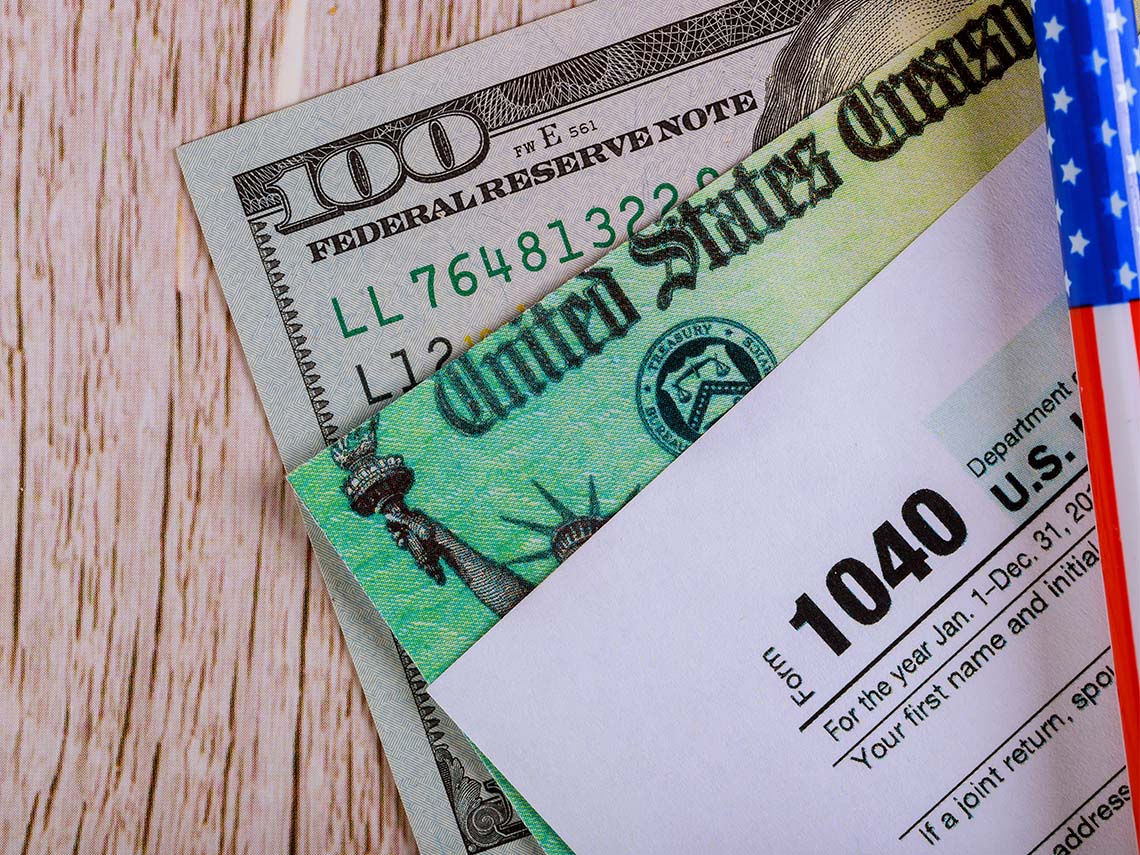Finding money deposited to your bank account sounds like the start of a good day. Although, many Americans are curious about the impact stimulus checks issued by the Federal Government have on their taxes. Understanding the ripple effect of such unique income deposits is key when preparing for future tax expectations.
With three rounds of economic stimulus payments, advances on the child tax credit, along with increased unemployment benefits behind us, what do taxpayers need to know?
Stimulus Payments vs. Recovery Rebate Credit
To clarify, the recovery rebate credit is based on the information listed in your 2021 tax return, while the stimulus payment deems eligibility on what’s included in your 2019/20 tax return. What is important to note is that you may be eligible for one and not the other. For example, individuals receiving a stimulus payment the previous year are less likely to qualify for the recovery rebate credit. The credit was designed to assist individuals who were meant to receive an economic impact payment but did not.
Quick Facts on Stimulus Payments and Your Taxes
Before we get into the details of the most common questions people are asking related to their taxes and stimulus payments, here are some quick facts you should know:
- Third Round Stimulus funds are not taxable. This is good news and those who did not get the full amount of the stimulus checks may find the missing amount added to their refund. Also, getting the full amount should not impact your refund.
- Claiming stimulus funds as income is a mistake. You could find yourself owing unnecessary taxes in addition to your regular amount.
- You are not required to pay back amounts you receive that are more than you are eligible for.
- Stimulus money received last year does not raise taxes owed this year.
While these facts may ease some taxpayer concerns; there are many other questions that arise. The intricacies of your personal situation and how your taxes are affected vary. However, here are some questions that address common tax issues.
Are college students eligible to receive stimulus checks?
Students that are not claimed as a dependent and are planning to file taxes may be eligible to receive stimulus money. Parents may opt to have their working student claim themselves as independent in order to receive the education credits and recovery rebate stimulus money that perhaps they would not be eligible for if included in their parent’s income.
How might I qualify for a higher stimulus amount?
Family additions in the previous tax year will result in a higher stimulus payment overall. Families that adopt, experience a birth, or take elderly parents into their care increase their expected stimulus amount.
Where can I see exactly what stimulus amounts I have received along with any other credits?
It’s important to stay up-to-date on what you’ve received from the Federal Government in terms of stimulus payments and other credits. To keep you informed on these matters, the IRS will issue notifications via mail as well as provide your information on your IRS account online. You can create an account and login any time you need to retrieve relevant information or clear up any questions you have. You will need accurate and up-to-date information when managing your taxes.
Dorn Policy Group, Inc. Can Assist You
As one of the leading Arizona government relations firms, Dorn Policy Group, Inc. knows how important it is to handle sensitive financial matters with care. With such a large, diverse community, it can be difficult getting your voice heard. Contact us today and learn how we can help your business find success with strong government relations.

